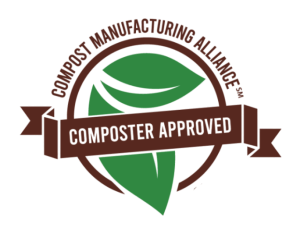Washington’s 2023 Legislative session is racing to the finish line. With less than 6 weeks until the end of the session, many compost and recycling focused bills have faltered, but several significant bills are still in play.
The deadline for all bills to pass out of their house of origin was March 8, 2023. Any bill that did not pass is not moving forward this session. Several bills we were tracking fell to this deadline.
Not Moving Forward This Session
The Extended Producer Responsibility (EPR) bill, known as the WRAP Act, did not pass in the House before the March 8 deadline and will not be moving forward this session. This bill garnered huge interest and participation, undergoing numerous amendments. With the input and engagement from this session, it is likely this bill will be reintroduced next session as a more seasoned bill.
Other bills that will not move forward this session include:
Biosolids: SB 5245, requiring PFAS limits in biosolids and creating tracking and notice requirements.
Farm and fields program enhancement:SB 5484,supporting Washington’s food production system by providing technical assistance in support of improved voluntary environmental stewardship.
Cannabis waste: SSB 5376. Allowing the sale of cannabis waste.
Grants for managing ag waste: SB 5551 / HB 1574, supporting Washington’s crop and livestock farms, reducing greenhouse gas emissions, and generating renewable energy by capturing methane.
Still Active
The compostables stakeholder committee bill, ESHB 1033, has moved forward. The bill would establish a stakeholder advisory committee to address issues related to the use, collection, and processing of compostable products within the state. The Advisory Committee will be comprised of representatives from government, compostable product manufacturers, compost manufacturers, certifiers, haulers, a trade association, and an environmental non-profit organization. The goal will be to produce a report of findings and recommendations to the legislature in 2024.
The Battery Recycling bill, ESSSB 5144, passed out of the Senate and is in the House Committee process. Currently, Washington businesses are required to use battery recycling services, but there is no requirement for individual consumers to do so. Despite voluntary options and efforts, battery recycling is not convenient, leaving mostof these dangerous and toxic items destined for landfills. This bill would require battery producers to join a Producer Responsibility Organization (PRO). The bill will not mandate battery recycling by individual consumer but aims to encourage recycling and provide more convenient disposal options.
Theplastic pollution reduction bill, SHB 1085, unanimouslypassed out of the House. The bill would require all new commercial construction to include a water bottle refill station wherever a drinking fountain is currently required. To reduce direct pollution in state waters, the bill would prohibit manufacture, sale and installation of overwater structures that use plastic foam. Lastly, the bill would ban the use of miniature toiletry products for hotel guests in the state.
The Right to Repair bill, ESSHB 1392 has also passed in the House and moved to the Senate for consideration. The bill would require certain electronics manufacturersto make accessible their product manuals, repair information, parts and special tools required to repair their products to allow consumers access repair services from independent facilities for products that they own.
The regular 2023 Legislative Session officially ends April 23, 2023.
